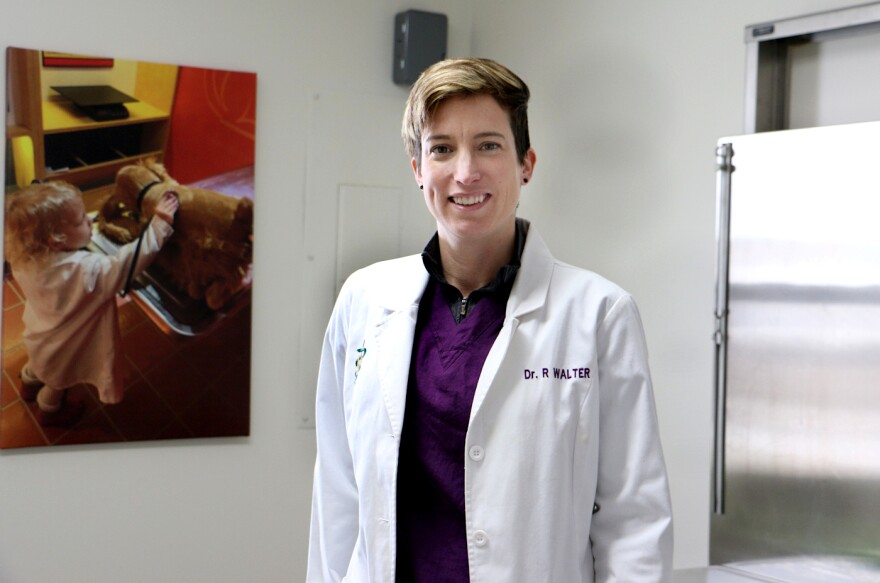Being a veterinarian sounds like any animal lover’s dream. You get to work with friendly, furry, tail-wagging clients. But the job is a lot harder than it looks.
“In the veterinary world, we are everything: the doctor, the pharmacist, the counselor. A lot of the times, we take the x-rays, we read the x-rays. We do the dental cleanings, we do the dental extractions. So we’re pulled in a lot of different directions each and every day,” said SmartVet owner and veterinarian Dr. Romanie Walter.
Wearing many hats, vets like Walter say the job is physically demanding. But little known is the emotional demand.
“I think a lot of people have no idea,” said Walter. “The average vet graduates with about $170,000 of debt, and 20% of those vets will have over $200,000 in debt. The problem is our salary is on average $80,500, (but) compared to the medical field, their salary after graduating with the same amount of debt is about $313,000.”
Between financial constraints and salary disparity, veterinarians are stretched too thin on the job and burdened by the stress. Even worse, some take their own life.
"There's a tug of war between what we recommend and what the owner is able to do."
A 2019 study by the Centers for Disease Control and Prevention found the veterinary field is facing a mental health crisis, with female vets 3.5 times and male vets 2.1 times more likely than the general population to commit suicide.
“There's about 113,000 veterinarians in the United States. We're a small knit community, so it's easy for us to hear about the next person who has decided to do that. And it affects us for several days,” said Walter.
She attributed the elevated suicide rate to compassion fatigue, a term Walter describes as “taking your work home with you.”
“Compassion fatigue is basically where you have a lot of empathy (and) you have a lot of compassion. And in veterinary medicine, there’s a tug of war between what we recommend and what the owner is able to do to provide for the health and happiness of their pet,” said Walter.
Clients often can’t afford the recommended procedures or surgeries, leaving veterinarians with no other choice than to send pets home sick and untreated.
Walter said she believes more can be done to improve the health and livelihood of veterinarians, starting with lowering the cost of vet school, promoting the need for pet insurance, and, above all, being more aware of compassion fatigue.
While Walter is tasked with monitoring the health of her loyal, little patients, she’s also keeping an eye on herself and encourages others to do the same.
“So (I) find ways of not taking (it) home but still being the compassionate veterinarian I need to be ... and then take five. You know, if you’re having a crazy day, go find a little corner of your office or outside and meditate or take a breath or pray or whatever it is that you need to do to get to a more centered place.”
People like you value experienced, knowledgeable and award-winning journalism that covers meaningful stories in Bloomington-Normal. To support more stories and interviews like this one, please consider making a contribution.



